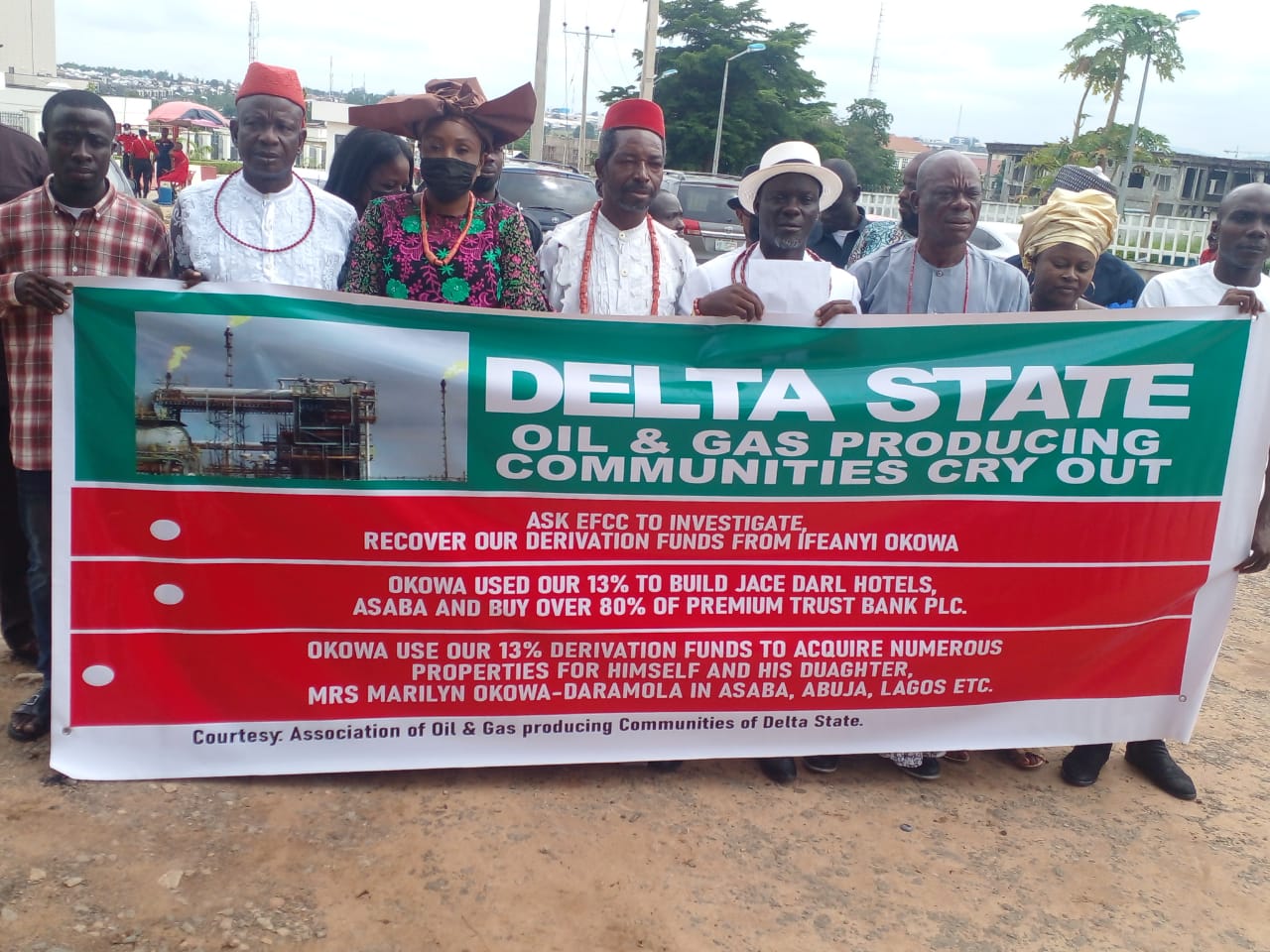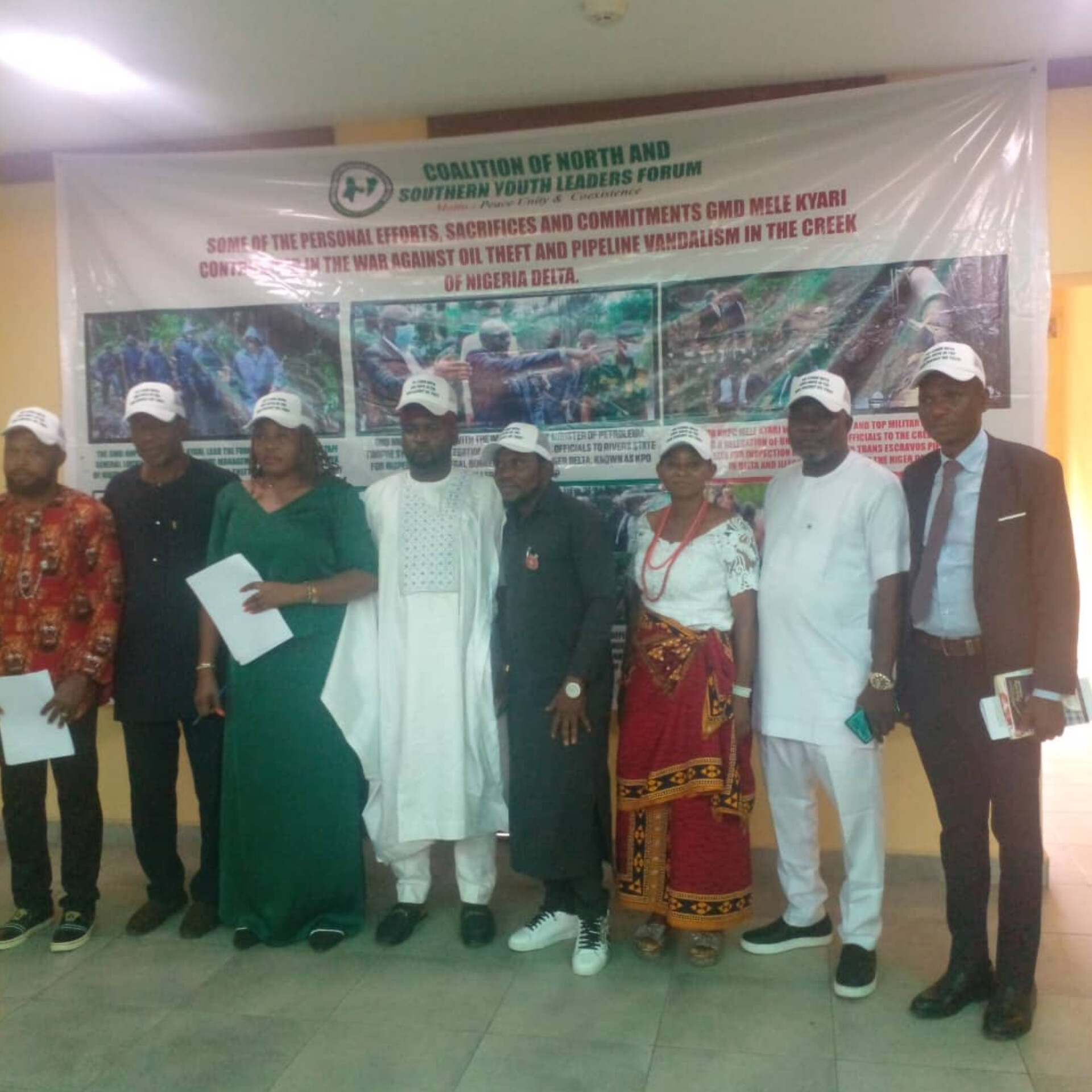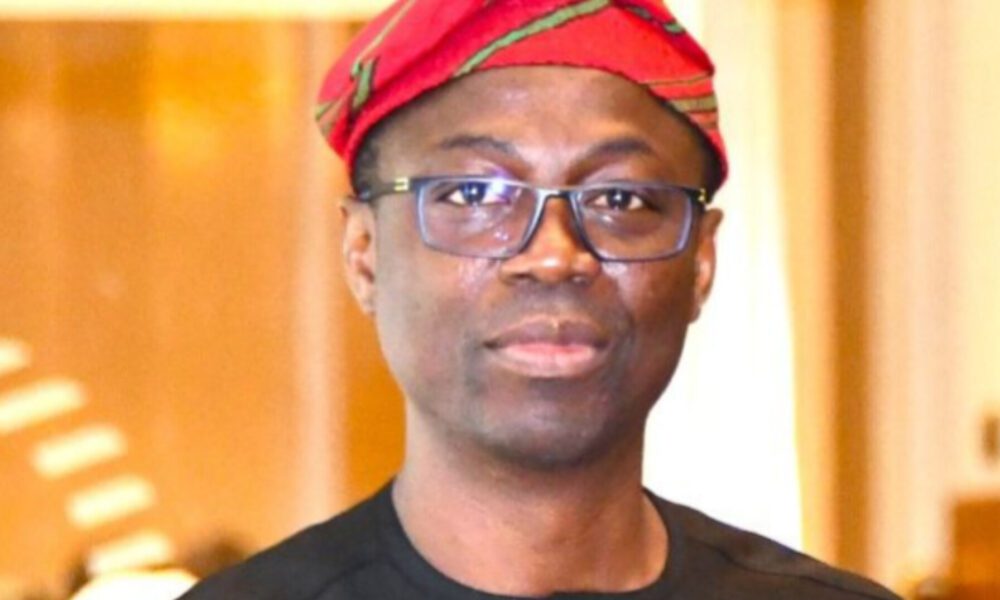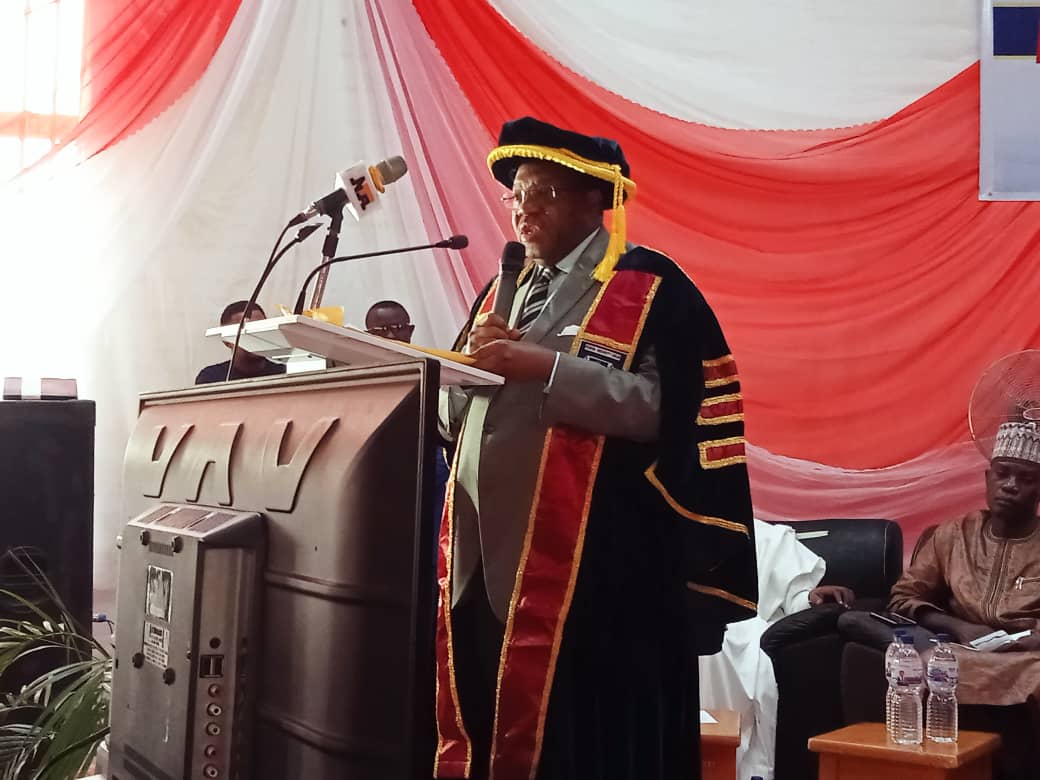The association of oil and gas communities in Delta State on Thursday urged the Economic and Financial Crimes Commission (EFCC), Abuja, to probe former Delta Governor, Ifeanyi Okowa, over alleged diversion of N1.07 trillion from the 13 percent oil derivation fund.
The request came after they stormed the headquarters of the EFCC Abuja,
The association which is made up of representatives of Ijaw, Itsekiri, Urhobo, Isoko and Ndokwa ethnic groups, frowned at the non-full remittance of 50 percent legally prescribed allocation to Delta State Oil Producing Areas Development Commission (DESOPADEC) during Okowa’s administration (2015 to 2023).
Addressing newsmen after submitting the association’s petition to EFCC, representative of the Ijaw ethnic nationality, Chief (Comrade) Mulade Sheriff, asked the anti-graft agency not to leave any stone unturned in ensuring the alleged diverted money is fully recovered.
The petition reads in part: “We are leaders and representatives of oil and gas producing Communities of Delta State. We wish to draw the attention of the general public, particularly, the Economic and Financial Crimes Commission (EFCC), to the illegal diversion of our entitlement from the 13% derivation funds.

“We are indigenes and members of the Oil and Gas Producing Communities in Delta State and it’s on this strength we are drawing the attention of your office to the flagrant and deliberate abuse of Section 162 (2) of the 1999 Constitution of the Federal Republic of Nigeria (as amended) and section 13 (1) of the Delta State Oil Producing Areas Development Commission (DESOPADEC) Law of 2006 (as amended), 2007, 2015 and 2018 established to cater for the wellbeing of the Oil and Gas Producing Communities in Delta State,
“It is imperative to state that the Delta State Oil Producing Areas Development Commission (DESOPADEC) Law 2006 (as amended), 2007, 2015 and 2018 respectively was established to expressly execute a clear mandate as stated in Section 13(1) of the DESOPADEC Law which provides thus:
“‘The commission shall receive and administer exclusively 50% of the Oil Derivation fund accruing to the Delta State Government for; a) The rehabilitation of the oil producing communities/areas of the state.’
”Other development projects as may be determined from time to time. We have observed curiously in 2022/2023 that the DESOPADEC has become moribund, and the Oil Producing Areas/Communities are nose-diving into abject poverty, which is inciting and causing youths restiveness and agitation in their various communities.
“From the records available to us upon an application to the Office of the Accountant- General of the Federation for a Certified True Copy (CTC) of the 13% oil derivation fund from the Federation Account to the Delta State Government between 2015-2022, the sum of N1,077,450,285,552.17 has been disbursed to the Delta State Government from July 2015 to December 2022, for the Rehabilitation and Development of the oil Producing Communities/Areas in Delta State.
“In fact what Okowa received is far more than N1,077,450,285,552.17 if the 13% monthly allocations of January 2023 to May 2023 are added. See attached CTC.”
The association also expressed serious concern over the alleged brazen manner funds meant for oil and gas producing communities were channelled to other purposes in violation of DESOPADEC law.
”By section 13(1) of the DESOPADEC Law 2006 (as amended) 2007, 2015 and 2018, the commission is legally and lawfully entitled to 50% from the 13% oil derivation fund from the Federation Account which is calculated at N538,725,142,776.85 (Five Hundred and Thirty-Eight Billion, Seven Hundred and Twenty-Five Million, One Hundred and Forty-Two Thousand, Seven Hundred and Seventy-Six Naira, Eighty-five Kobo) from the Delta State Government.
“That from the information obtained, it is obvious that the Delta Government grossly underfunded the Delta State Oil Producing Areas Development Commission as it was in the habit of consistently and deliberately disbursing less than the sum of N20,000,000,000 (Twenty Billion Naira) only annually for the past Eight Years….
“Sir, unfortunately all efforts by our communities’ leaders and other well-meaning personalities in Delta State to have the Delta State Government to obey, observe and comply with the DESOPADEC law and render account for the said misappropriated fund have proved abortive hence this petition.
“It is very nauseating that despite the stupendous Billions of Naira being paid to the Delta State Government from the 13% oil derivation fund from the Federation Account, The Oil Producing Areas/Communities continue to wallow in abject poverty with no commensurate social amenities and infrastructures in place.
“This gross and reckless misappropriation of the 13% oil derivation fund meant for the Oil Producing Communities largely account for the incessant restiveness and agitations in the Niger Delta Region.
“We are strongly appealing to the Commission saddled with the responsibility to probe and Investigate the immediate-past Governor, Senator (Dr) Ifeanyi Arthur Okowa, to recover and return our money of the 50% of the 13% Oil derivation fund from the Federation Account to the State Government and render necessary Account for the said illegally and unlawfully misappropriated balance to DESOPADEC coffers, to enable them develop our communities, ” the petition read.
Recall that the petition which was received by EFCC was signed by Mulade Sheriff (Ijaw Ethnic Nationality), Sir Mathew Itsekure (Itsekiri Ethnic Nationality), Mrs Patience Ego Afujue (Ndokwa Ethnic Nationality), Hon Mark Ikpuri, (Urhobo Ethnic Nationality) and Chief John Etenero (Isoko Ethnic Nationality).




